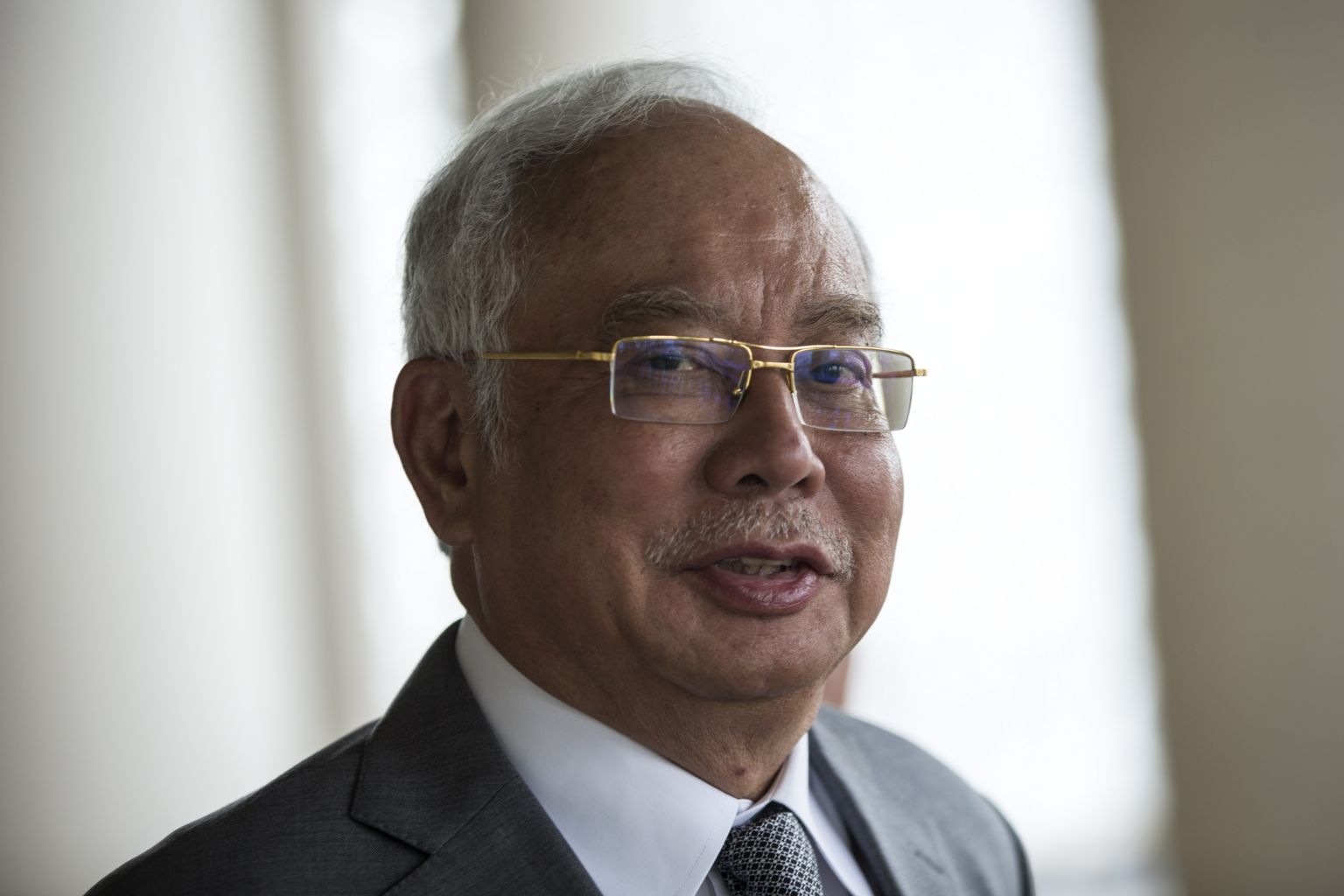Malaysia's ex-PM Najib has right to take action over audio clips, says anti-graft chief
Sign up now: Get insights on the biggest stories in Malaysia

The voice recordings appeared to show former Malaysian premier Najib Razak conspiring with senior Malaysian officials to cover up the 1MDB scandal.
PHOTO: EPA-EFE
IPOH (THE STAR/ASIA NEWS NETWORK) - Former premier Najib Razak has the right to take action regarding the release of audio clips by the Malaysian Anti-Corruption Commission (MACC) which allegedly incriminate him and other top officers, said MACC chief commissioner Latheefa Koya.
"It is within his right to do whatever he wants to," she told reporters during a visit to Perak capital Ipoh on Thursday (Jan 9).
Lawyers, meanwhile, debated whether it was unethical for the anti-graft chief to release the nine clips on Wednesday, while several said these would be admissable in court.
Najib's lawyer Shafee Abdullah said they were contemplating contempt proceedings against the MACC and Ms Latheefa for releasing information that was sub judice - under judicial consideration and prohibited from discussion - amid the ongoing 1MDB trials involving the ex-prime minister.
Ms Latheefa said on Thursday that the MACC had sent the first round of audio clips to the police for investigation.
"Whatever we reveal will have to be investigated. Based on what we have told earlier, there are elements of wrongdoings that can be heard in the audio (recordings)," she said.
"This means not only that the police can conduct investigations, MACC is also allowed to do it."
The voice recordings appeared to show Najib conspiring with senior Malaysian officials to cover up the 1MDB scandal and asking United Arab Emirates leaders to do the same in a dispute over US$6.5 billion (S$8.78 billion) in debt payments to Abu Dhabi's International Petroleum Investment Company (IPIC).
The MACC on Wednesday played several clips from 2016 which allegedly revealed an attempt to manipulate investigations and other fraudulent acts aimed at concealing missing funds from 1MDB, the state investment firm under the then-premier's control.
Ms Latheefa did not reveal the source of the nine recordings - all of which appeared to be phone conversations - but said they were received all at once.
The MACC believes the voices on the recordings include those of Najib's wife Rosmah Mansor (who is facing separate graft charges), former MACC chief Dzulkifli Ahmad and prominent Abu Dhabi figures including Crown Prince Sheikh Mohammed Zayed Al-Nahyan and the chief executive officer of the emirate's sovereign wealth fund Mubadala Development Company, Khaldoon Khalifa Al-Mubarak.
Meanwhile, lawyers were mixed on whether the MACC should have placed the recordings in the public sphere.
Pakatan Harapan MP and lawyer Ramkarpal Singh said in a statement on Thursday that what Ms Latheefa did could be seen as a trial-by-media of those implicated in the recordings.
Lawyer Haniff Khatri Abdulla said Ms Latheefa should have ordered the officer who received the nine audio clips to lodge a police report because it was not within the jurisdiction of the MACC to investigate criminal offence under the Penal Code.
Others say the audio clips would be admissable in court.
Criminal lawyer Kitson Foong said illegally-obtained evidence remained admissible in Malaysia, but this was subject to provisions in Section 90A of the Evidence Act 1950.
This means that either the maker of the sound recordings has to testify or a certificate must be produced to confirm that the recordings were "generated by any device in its ordinary course of use".
"However, what is of greater importance is the weight that the court attaches to such evidence after it is adduced in court... Admissibility is one thing, credibility is another, " he said.


